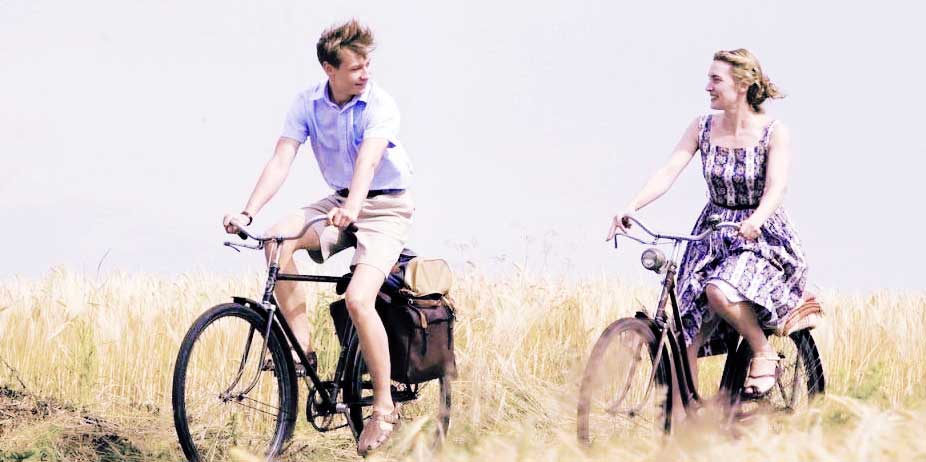 The
Reader (2008)
The
Reader (2008)
Originally opted for the screen by Anthony Mingella and shelved for eight years while he pursued other projects, this film was released last season to critical acclaim and controversy. I can understand the fascination with the film, for it asks some very powerful questions -- and does not provide any answers.
A successful attorney with a failed marriage and tempestuous relationship with his daughter, Michael Berg (Ralph Fiennes) returns to the home of his childhood in order to visit the past and unveil secrets he has never confided to anyone. When he was fifteen, Michael (David Kross) fell ill with scarlet fever and a woman in the street assisted him home. Three months later, well enough to venture out and about, he takes her flowers in gratitude. Hannah Scmitz (Kate Winslet) is a solitary and illiterate thirty-something whom he befriends and over the course of the summer, their relationship intensifies into a secret affair. An emotional journey for him, and a physical source of release for her, their more innocent moments are in a mutual adoration for books as he reads her the classics. Eventually, their relationship comes to an end and she vanishes without a trace.
Ten years later, as part of a small group of budding criminal lawyers Michael attends a trial against Nazi war crimes and is horrified to recognize Hannah as one of the defendants. Ashamed of her illiteracy, Hannah will not defend herself against the accusations and her fellow guards intend to leave her with most of the blame. Torn between intervention and watching the trial unfold, Michael begins to realize how much of a tremendous impact Hannah has had on his life -- and faces the devastating realization that the woman he loves engaged in some of the most repulsive behavior in human history. The result is a moral complexity in a movie that does not ask us to condemn or defend Hannah so much as marvel at her coldness. Her tenderness with Michael is contradicted by the harrowing descriptions of her and others allowing a church full of Jewish prisoners to burn to the ground during a bombing raid. Winslet knows her character is unlikable and does not demand our empathy through her chilling performance, but at the same time it's impossible not to experience some form of mild compassion toward her.
Some have argued that the film attempts to make Hannah innocent of all wrongdoing because of her illiteracy ("she did not know any better"), but I did not feel that was it's intention. Certainly, in her case it contributed to her actions but did not excuse them, and it was apparent that her guilt and remorse was immense. The nature of the film is in of itself offensive, because it graphically depicts a sexual affair between a fifteen year old boy and a much older woman. The reason for this age gap is not merely for controversy, but also to illustrate the difference between the older and younger generations of Germans after the war. (Those responsible for the mass murders, and those incapable of understanding them.) The Reader explores the repercussions and difficult questions about the war without actually being a wartime film, and in that sense it is brilliant. But most audiences have agreed that its depiction of the affair went beyond good taste. In my opinion, the implication of their affair would have been enough -- we did not really need to see such frequent or explicit encounters.
There are a half dozen scenes of a sexual nature and a lot of nudity, both male and female, in different settings and contexts. The fact that most of it is between an older woman and a boy should make audiences uncomfortable. Other content is virtually nonexistent except for two minor profanities. I was surprised how moving and haunting it was and how much it challenged me to look at its main characters through far different eyes.
